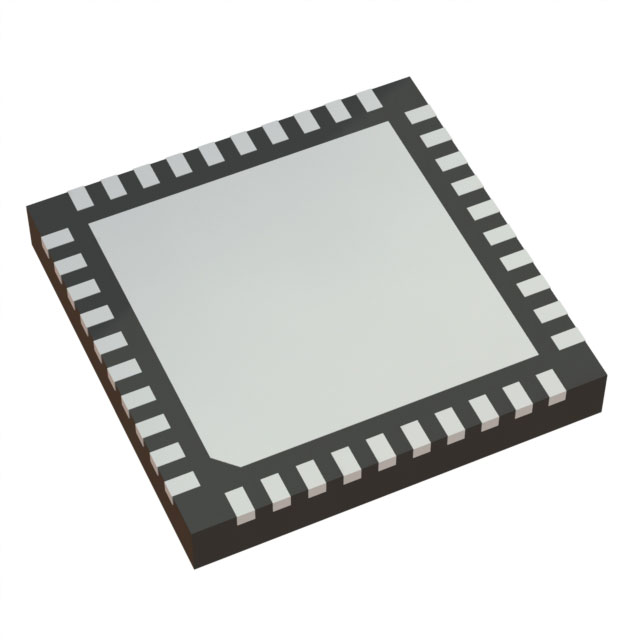8T49N240-023NLGI
Manufacturer No:
8T49N240-023NLGI
Manufacturer:
Description:
IC JITTER ATTEN 40VFQFPN
Datasheet:
Delivery:





Payment:




In Stock : 0
Please send RFQ , we will respond immediately.









8T49N240-023NLGI Specifications
-
TypeParameter
-
Supplier Device Package40-VFQFPN (6x6)
-
Package / Case40-VFQFN Exposed Pad
-
Mounting TypeSurface Mount
-
Operating Temperature-40°C ~ 85°C (TA)
-
Voltage - Supply2.375V ~ 2.625V, 3.135V ~ 3.465V
-
Divider/MultiplierYes/No
-
Frequency - Max867MHz
-
Differential - Input:OutputYes/Yes
-
Ratio - Input:Output2:4
-
Number of Circuits1
-
OutputHCSL, LVCMOS, LVDS, LVPECL
-
InputLVCMOS, LVDS, LVHSTL, LVPECL, Crystal
-
PLLYes
-
TypeJitter Attenuator
-
DigiKey ProgrammableNot Verified
-
PackagingTray
-
Product StatusActive
-
SeriesFemtoClock® NG
The 8T49N240-023NLGI is a specific integrated circuit chip designed by IDT (Integrated Device Technology). It is a highly versatile device that offers several advantages and can be applied in various scenarios. Here are some of its advantages and application scenarios:Advantages: 1. Clock Generation and Distribution: The 8T49N240-023NLGI chip provides high-performance clock generation and distribution capabilities. It can generate multiple clock signals with precise frequency and phase control, making it suitable for applications requiring synchronized timing signals.2. Flexible Configuration: This chip offers flexible configuration options, allowing users to customize the output frequencies, formats, and voltage levels according to their specific requirements. It provides a wide range of programmable features, making it adaptable to different applications.3. Low Jitter: Jitter refers to the variation in the timing of clock signals. The 8T49N240-023NLGI chip is designed to minimize jitter, ensuring accurate and reliable timing for critical applications. Low jitter is particularly important in high-speed data communication, networking, and multimedia systems.4. Multiple Input and Output Options: The chip supports various input and output options, including differential and single-ended clock inputs, as well as LVPECL, LVDS, HCSL, and CMOS output formats. This versatility allows it to interface with different devices and systems.Application Scenarios: 1. Networking and Telecommunications: The 8T49N240-023NLGI chip can be used in networking and telecommunications equipment, such as routers, switches, and base stations. It provides precise clock synchronization for data transmission, ensuring reliable communication and minimizing data errors.2. Data Centers: In data centers, where high-speed data processing and storage are crucial, this chip can be employed to generate and distribute synchronized clock signals. It helps maintain accurate timing across various components, improving system performance and reducing data transmission errors.3. Test and Measurement Equipment: The chip's programmable features and low jitter make it suitable for test and measurement applications. It can generate precise timing signals for equipment like oscilloscopes, logic analyzers, and signal generators, ensuring accurate measurements and analysis.4. Broadcast and Audio/Video Systems: The 8T49N240-023NLGI chip can be utilized in broadcast and audio/video systems to synchronize various components, such as cameras, audio mixers, and video processors. It ensures seamless operation and synchronization of different media streams.5. Industrial Automation: In industrial automation systems, where precise timing is essential for synchronized operation, this chip can be employed to generate and distribute accurate clock signals. It helps coordinate the timing of various processes and devices, improving overall system efficiency.Overall, the 8T49N240-023NLGI integrated circuit chip offers advantages like clock generation, flexible configuration, low jitter, and multiple input/output options. Its application scenarios range from networking and telecommunications to data centers, test and measurement equipment, broadcast systems, audio/video systems, and industrial automation.
8T49N240-023NLGI Relevant information
-
SI5332BD11784-GM2R
Skyworks Solutions Inc. -
SI5332BD12441-GM2R
Skyworks Solutions Inc. -
SI5332BD13549-GM2R
Skyworks Solutions Inc. -
SI5332BD11107-GM2R
Skyworks Solutions Inc. -
SI5332BD11650-GM2R
Skyworks Solutions Inc. -
SI5332BD13507-GM2R
Skyworks Solutions Inc. -
SI5332BD11320-GM2R
Skyworks Solutions Inc. -
SI5332BD13696-GM2R
Skyworks Solutions Inc. -
SI5332BD13619-GM2R
Skyworks Solutions Inc. -
SI5332BD11748-GM2R
Skyworks Solutions Inc.







